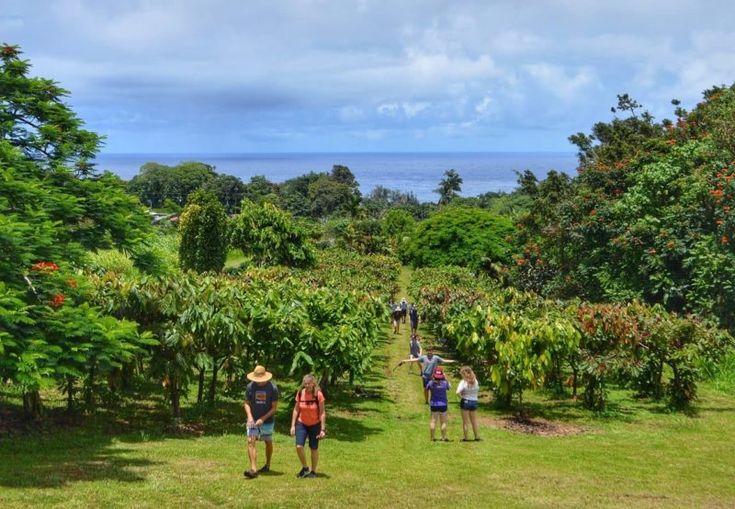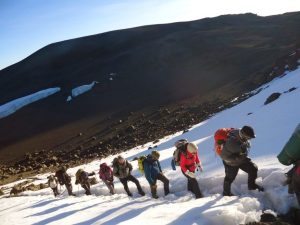Farm Tours Rwanda.
Farm Tours in Rwanda offer a unique opportunity to explore the country’s agricultural sector, which is a cornerstone of its economy. Visitors can experience Rwanda’s rich farming traditions, visit small-scale farms, learn about sustainable agriculture practices, and taste fresh, locally grown products. Rwanda’s lush landscapes and temperate climate make it an ideal location for farming, and farm tours provide insight into both traditional methods and modern agricultural innovations. Here’s what to expect from a Farm Tour in Rwanda:
1. Types of Farm Tours
a) Coffee Farm Tours
Rwanda is famous for its high-quality Arabica coffee, and coffee farm tours are among the most popular farm experiences in the country.
- What to Expect:
- Visit coffee plantations and learn about the entire coffee production process, from planting and harvesting to processing and roasting.
- Meet local coffee farmers and learn how coffee is grown on the terraced hillsides.
- Participate in coffee tasting sessions where you’ll learn about Rwanda’s unique coffee flavor profiles, which are often fruity and floral.
- Popular regions for coffee tours include Nyamagabe, Rubavu, and around Lake Kivu.
b) Tea Plantation Tours
Rwanda is also a significant producer of tea, and its tea plantations are as beautiful as they are productive. Tours typically take place in regions like Nyungwe and Gisovu.
- What to Expect:
- Walk through sprawling tea estates and enjoy breathtaking views of the green fields against the backdrop of Rwanda’s hills.
- Learn about the tea-making process, from hand-picking tea leaves to sorting, drying, and processing.
- Visit tea factories where the raw tea leaves are processed into different types of tea (e.g., black, green, and white).
- Sample freshly brewed Rwandan tea during a tasting session.
c) Agro-Tourism and Eco-Farm Visits
Rwanda has numerous small eco-farms and organic farms that offer hands-on experiences.
- What to Expect:
- Engage in daily farming activities such as planting crops, tending to livestock, or learning about composting and permaculture practices.
- Learn about sustainable farming techniques that focus on environmental conservation, soil fertility, and biodiversity.
- Visit farms that grow a variety of produce, including bananas, cassava, beans, avocados, pineapples, and more.
- Some farms offer cooking demonstrations where visitors can help prepare and enjoy meals using fresh, organic ingredients sourced from the farm.
d) Livestock Farm Tours
Rwanda’s rural areas are home to many livestock farms, where visitors can observe traditional and modern methods of raising animals like cows, goats, and chickens.
- What to Expect:
- Visit dairy farms to see how milk is produced and processed into products like cheese, butter, and yogurt.
- Learn about the importance of “Girinka”, Rwanda’s national cow-giving program, which helps impoverished families by providing them with cows to improve nutrition and income.
- Some tours also include visits to honeybee farms, where you can learn about beekeeping and taste local honey.
2. Popular Farm Tour Destinations
a) Kinigi and Musanze
Located near Volcanoes National Park, this region is known for its fertile volcanic soils, which support a variety of crops. It’s a great place to combine a farm tour with a visit to see mountain gorillas or golden monkeys.
b) Nyungwe Forest Area
Near the Nyungwe National Park, visitors can explore tea plantations that dot the landscape, as well as eco-farms that practice sustainable agriculture. This area is also rich in biodiversity, so farm tours can be combined with birdwatching or forest hikes.
c) Lake Kivu Region
The area around Lake Kivu is famous for its coffee farms, especially in Rubavu and Karongi. The stunning lake views make the farm visits even more special, and many tours offer boat rides as part of the experience.
d) Eastern Province
Known for its large-scale farming of bananas, maize, and beans, this region is home to many farms that focus on food security and community development. Visitors can participate in farming activities and learn about the role of agriculture in rural livelihoods.
3. Cultural and Educational Experiences
Many farm tours in Rwanda offer more than just an agricultural experience; they provide insight into the cultural importance of farming in Rwanda.
- Learn About Traditional Farming: In addition to modern farming techniques, visitors will learn about indigenous farming methods that have been passed down through generations. This might include terrace farming on Rwanda’s steep hillsides or traditional irrigation methods.
- Rwanda’s Vision for Agriculture: Rwanda has made significant investments in sustainable and innovative agricultural practices to support its growing population and achieve food security. Many farm tours highlight these efforts, giving visitors a deeper understanding of the country’s development goals.
4. Additional Activities on Farm Tours
- Cooking Classes: Many farm tours offer cooking experiences where visitors can learn to prepare traditional Rwandan dishes like Ugali (a type of porridge), Isombe (cassava leaves), and brochettes using fresh produce from the farm.
- Nature Walks: Depending on the location, some farms offer guided nature walks through nearby forests or along rivers, giving visitors a chance to explore the surrounding environment.
- Volunteering: Some eco-farms or community-based farms offer volunteer opportunities, where you can spend a day helping with farming tasks while learning about sustainable agriculture and community development.
5. Best Time for Farm Tours in Rwanda
Rwanda has a mild tropical climate, making farm tours possible year-round. However, the dry seasons (from June to September and December to February) are the best times to visit, as the weather is more predictable, and the landscapes are lush and green.
Conclusion
Farm tours in Rwanda offer a unique and educational way to explore the country’s rich agricultural heritage. Whether you’re visiting coffee and tea plantations, learning about sustainable farming practices, or experiencing the culture of rural communities, a farm tour is a perfect way to connect with Rwanda’s land and people. These tours are ideal for travelers looking to combine nature, culture, and hands-on experiences in one of Africa’s most beautiful countries.




